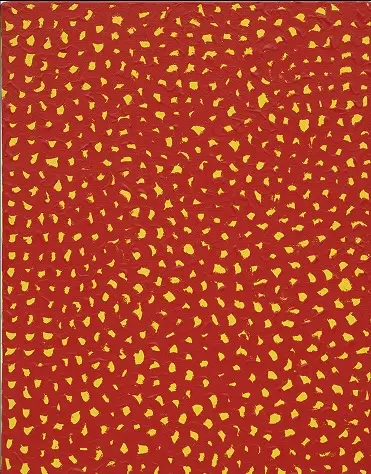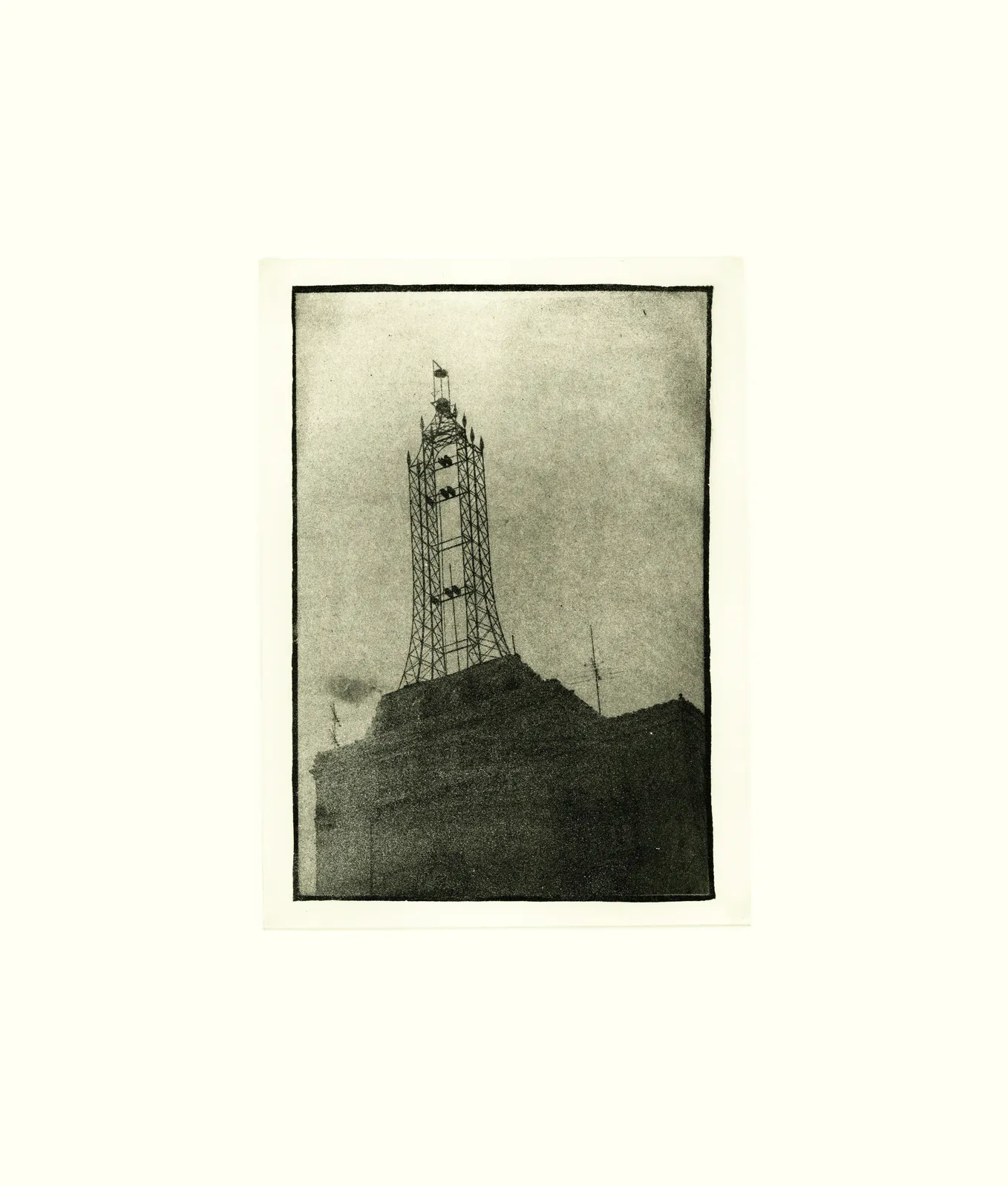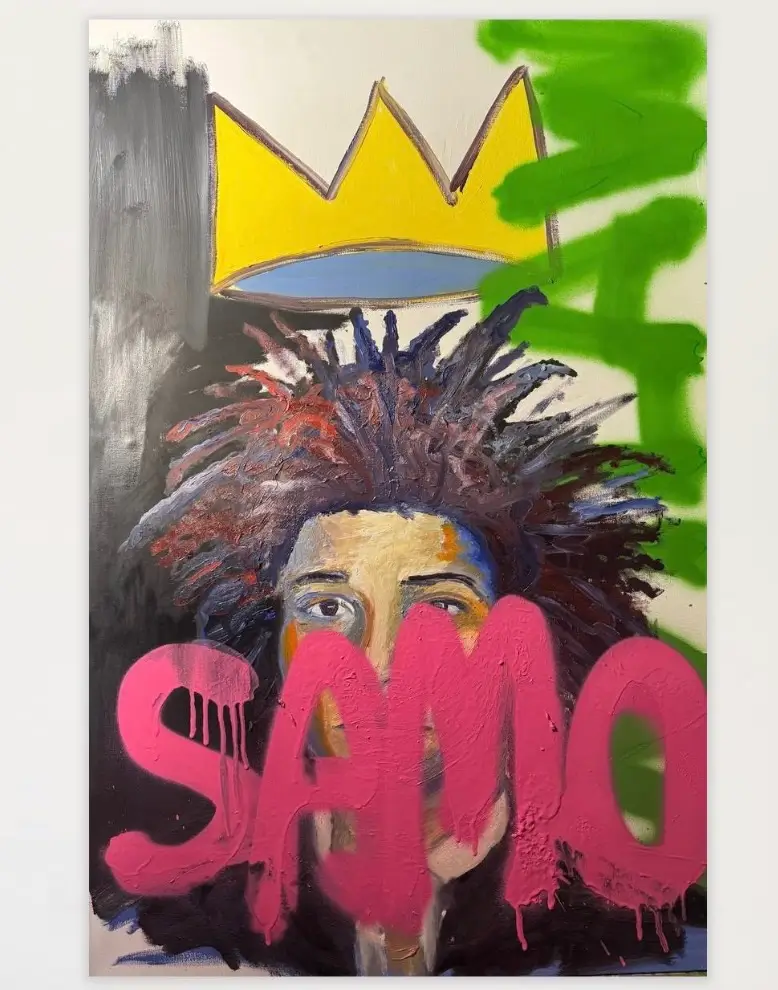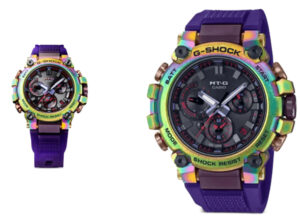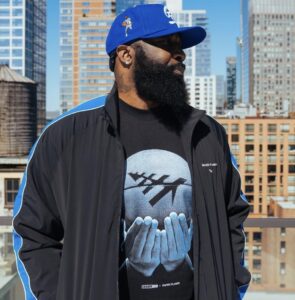There is a certain irony to Alec Monopoly’s career. An artist whose very pseudonym mocks capitalism’s most recognizable board game figure has, over the past decade, become one of contemporary art’s most commercialized icons. And yet, buried within Monopoly’s neon-streaked canvases and pop-ironic murals lies something far more tender: an ongoing fable of survival, ambition, and reinvention. Nowhere is this duality more sharply — and more charmingly — captured than in SPACEMAN RICHIE, the latest evolution in his “Rags to Richie” series.
Part graffiti relic, part Wall Street fever dream, and part childlike aspiration, SPACEMAN RICHIE is Alec Monopoly at his most narratively potent. Through the simple, whimsical image of a cartoon astronaut, Monopoly stretches his critique — and perhaps, his celebration — of capitalism and escapism into cosmic dimensions.
Richie Rich Reinvented Again
The “Rags to Richie” narrative has always been the beating heart beneath Alec Monopoly’s work. His recurring character, an orphaned version of the classic Harvey Comics’ Richie Rich, is stripped of his effortless wealth and plunged into a far grittier urban struggle. The Richie of Monopoly’s imagination isn’t just rich — he becomes rich. He hustles, he dreams, he survives.
SPACEMAN RICHIE pushes this metaphor to its natural extreme: Richie isn’t just dreaming of escaping poverty anymore — he’s dreaming of escaping gravity itself. Decked in a plump, cartoonish space suit splattered with Monopoly’s signature graffiti tags and paint drips, SPACEMAN RICHIE doesn’t seem weighted down by realism. He’s a vision of pure hope, floating toward a better life somewhere beyond Earth’s oppressive systems.
The astronaut suit itself is symbolic. Space travel, historically, has been reserved for the privileged few — an ultimate adventure reserved for governments and billionaires. Richie, as imagined by Monopoly, claims that dream for himself. In a landscape riddled with economic inequality, Richie becomes an avatar for those who dare to dream beyond the ceilings imposed upon them.
Neon Dreams and Urban Realities
Monopoly’s SPACEMAN RICHIE continues the artist’s love affair with color and surface. Painted in fluorescent tones and finished with slick, almost candy-coated layers, Richie’s spacesuit becomes a billboard for resilience. Hints of money signs, stock market symbols, and playful graffiti slogans blur together across the suit’s body like visual static.
At first glance, the imagery might seem chaotic or frivolous — a cacophony of neon noise. But a deeper reading reveals an intentional layering: this is Richie carrying the residue of Earth’s systems — its commerce, its ambition, its endless hustle — even as he tries to launch beyond them. SPACEMAN RICHIE can never fully leave behind the realities that shaped him, even in the vacuum of imagined space.
The texture is crucial here. Monopoly’s characteristic drip techniques and spray-paint aesthetics preserve the “street” feel that has always anchored his work. Even as Richie ascends, he remains rooted in the graffiti ethos: art as reclamation, art as survival, art as resistance against erasure.
Art, Commerce, and the Ultimate Escape
There is a wicked sense of humor threading through SPACEMAN RICHIE’s very existence. Alec Monopoly — a street artist turned darling of the rich — knowingly walks the tightrope between rebellion and commercial embrace. His astronaut Richie is not merely a dreamer; he is a product, a brand, a commodity to be bought, traded, and displayed.
In this way, SPACEMAN RICHIE becomes a wry commentary on Monopoly’s own career arc. He critiques the capitalist art machine even as he participates in it. By transforming Richie Rich — a symbol of inherited wealth — into an aspirational graffiti astronaut, Monopoly reclaims and repackages capitalism’s own imagery into a folk hero for those still clawing their way upward.
Critics have long debated whether Monopoly’s art is subversive or complicit, whether it challenges the art world’s elitism or merely cashes in on it. SPACEMAN RICHIE, in its playful ambiguity, refuses to offer a definitive answer. Instead, it floats in a nebulous zone where irony and sincerity intermingle — much like Richie himself floats through the imagined cosmos, untethered and dreaming.
SPACEMAN RICHIE as Cultural Mirror
Beyond the personal or artistic layers, SPACEMAN RICHIE reflects broader cultural anxieties and aspirations. In an age defined by billionaire space races, widening wealth gaps, and a collective sense of terrestrial exhaustion, the image of a plucky, graffiti-daubed Richie hurtling toward the stars feels pointed.
It asks: What does it mean to dream of escape today?
It wonders: Is there still purity in ambition when the finish line itself has been bought and sold?
SPACEMAN RICHIE doesn’t offer easy resolutions. Instead, he invites viewers to sit with the contradictions. To recognize the beauty of wanting something better — and the absurdity of a system where even that desire is commodified.
A Masterpiece of Accessible Fantasy
Perhaps most importantly, Alec Monopoly’s SPACEMAN RICHIE is fun. It’s colorful, approachable, immediately understandable even to audiences outside of the traditional contemporary art scene. In a world where so much “important” art is cloaked in academic gatekeeping, Monopoly’s work feels refreshingly democratic.
You don’t need a fine arts degree to appreciate the hopeful mischief in Richie’s grin, or the bittersweet tension in his loaded spacesuit. You simply need to have wanted more once — more freedom, more possibility, more escape.
It’s this accessibility, this fundamental emotional universality, that elevates SPACEMAN RICHIE beyond mere merchandise and into the realm of lasting pop cultural artifact.
Final Ascent
In SPACEMAN RICHIE, Alec Monopoly distills a complicated, often cynical worldview into a single, buoyant image. It is a work that acknowledges the crushing weight of Earth’s systems even as it dares to imagine a way beyond them.
Richie is a hustler, a dreamer, an astronaut without a country — and, in many ways, so are we all.
As the paint drips and the neon lights pulse across Richie’s helmet, Alec Monopoly offers no map, no final destination. Only a possibility: that somewhere out there, beyond commerce and gravity, something freer awaits.
And sometimes, possibility — no matter how cartoonish, how commercialized, how painted-on — is the most radical dream of all.
No comments yet.



